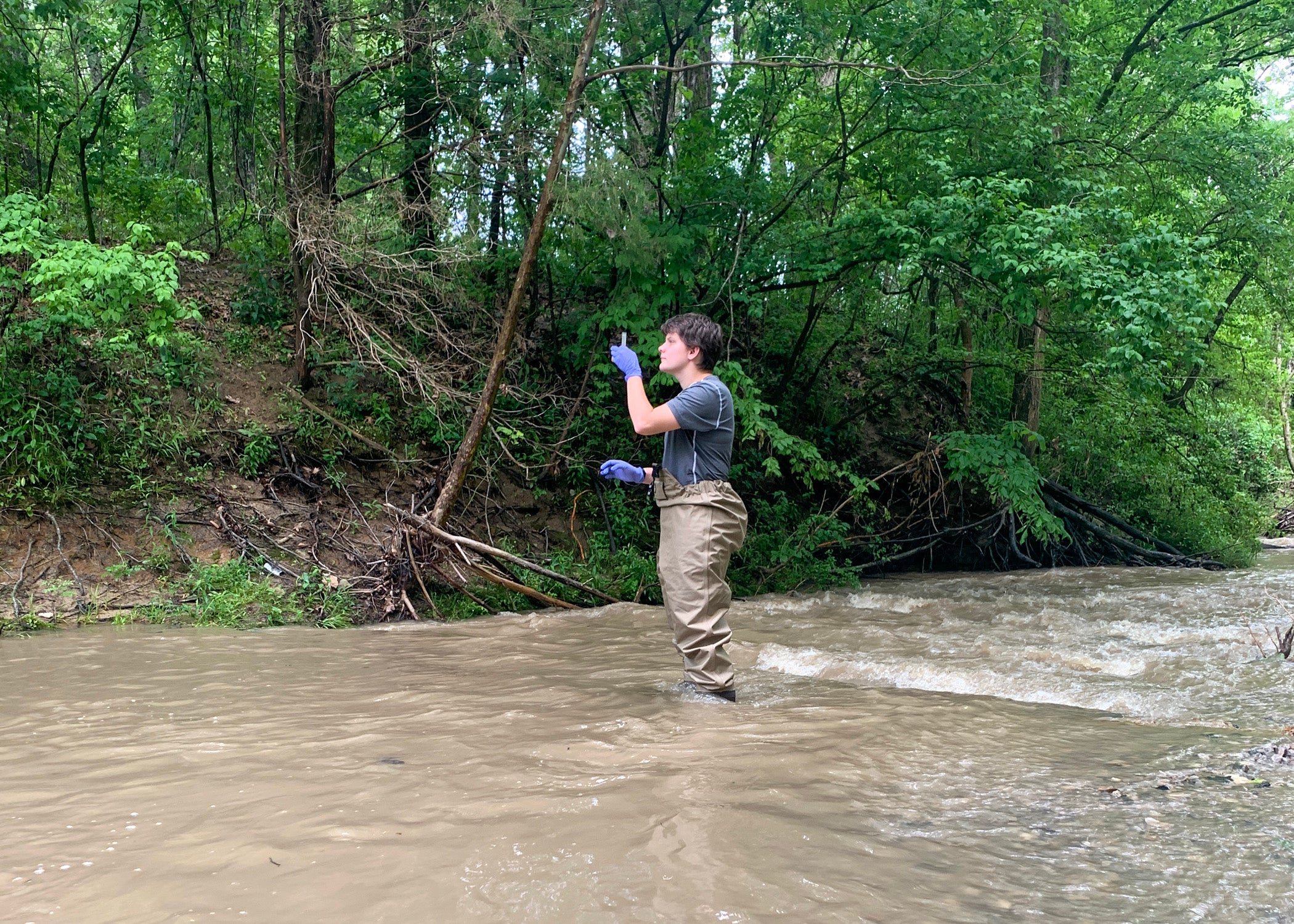Citizens learn new skills, help protect waterways
Published 8:13 am Friday, August 20, 2021

- Cutline: Mississippi State University student Madison Gnoose collects a water sample in a creek for the Mississippi Water Stewards Program. (Photo by MSU Extension Service) Alt text: Woman in wading pants collects a water sample in a creek.
By Beth Baker
MSU Extension Service
Recreation in and around water is a great way to get outside in the warmer months and still stay cool. Whether you enjoy boating, fishing, swimming, kayaking, wildlife watching, exploring creeks and streams, or paddling coastal bays and estuaries, Mississippi’s waterways have a lot to offer.
Mississippi boasts approximately 123,000 miles of stream and 225,000 acres of fresh water, along with our coastal waters. Public water bodies are common places for recreation. They also support navigation that is important to the state economy and provide habitat to numerous fish and wildlife species.
For bodies of water to function properly and support different uses, water quality must be maintained. Sometimes pollutants — sediment, waste, oil, detergents, manure and fertilizers, and other chemicals — can be transported from land to the water. This type of pollution, coming from many different landscapes in surface runoff, is referred to as “non-point source pollution,” which degrades water quality in many Mississippi water systems.
Because there are so many bodies of water in Mississippi, it is impossible to always track the water quality in all of them. Citizens who live and enjoy recreation near the water can play an important role in noticing changes in water quality.
An easy way to connect to water bodies near you is by paying attention to water conditions. Watching for patterns in water flow, paying attention to odd smells, or observing abnormal changes in water color, cloudiness or algae growth can be important contributions in maintaining water quality.
Routinely collected water quality data can help citizens identify water that might not be safe for recreation, serve as an early indicator of a water quality concern that might need additional monitoring, and guide local decision making and planning.
Tracking water quality over time can also document healthy streams and rivers that should continue to be protected.
A Mississippi State University Extension program, Mississippi Water Stewards, offers educational opportunities for citizens to get more involved in monitoring and protecting local water bodies. The program coordinates a statewide effort for training citizens in scientifically sound methods for monitoring bacteria and chemistry in local lakes and streams on a routine basis.
If you ever notice changes in conditions that are concerning, it’s always safest to stay out of the water and report concerns to the Mississippi Department of Environmental Quality.
For more information about the Mississippi Water Stewards program, contact Beth Baker with the Mississippi Water Stewards program at MSU at 662-325-7491 or beth.baker@msstate.edu.


